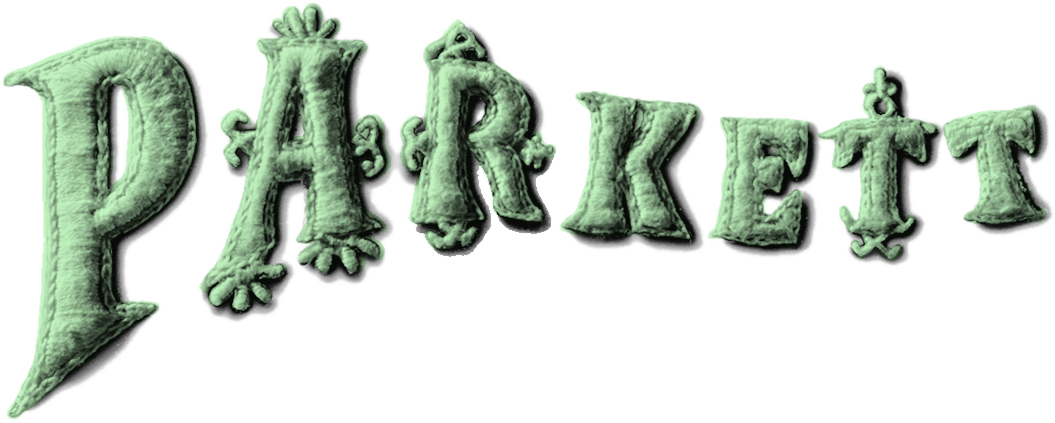Parkett Vol. 82 - 2008 | Pawel Althamer, Louise Bourgeois, Rachel Harrison
Pawel Althamer
Read a selected text (PDF)
View edition
Louise Bourgeois
Read a selected text (PDF)
View edition
Rachel Harrison
Read a selected text (PDF)
View edition
Insert Sadie Benning (PDF)
Spine Paulina Olowska
Cumulus
On ‘Otra De Vaqueros’ in Mexico City and Geneva by Catherine Chevalier
Reflections on traces of the Middles Ages in contemporary culture by Mark von Schliegell
Miscellaneous
UbuWeb by Kenneth Goldsmith (PDF)
U.S. & Canada
Please place your order through our distributor D.A.P. here.
Browse Selected Texts and more on the Collaboration Artists
Artist Insert
Editorial
An extended relationship unites Louise Bourgeois and Parkett. Twenty years ago Louise designed the insert for our 18th issue. Then, in 1991, she did a collaboration for No. 27, alongside Robert Gober. She was 80; he was 37. We recall thinking, at the time, that it was a somewhat daring juxtaposition. Today it seems quite logical and continues to elicit profound inspiration, which is not surprising given the unflagging energy and development of Louise Bourgeois’s oeuvre and its remarkable reception, as illustrated by the current European retrospective that highlights her most recent output. Once again, this art clearly demonstrates what a precise and inimitably seminal voice hers has been through the decades. Delight in the privilege of having been able to trace these developments at first hand resonates in Robert Storr’s article “Bad Mother of Them All-Sister of Some”, which is compellingly seconded by Tracy Emin’s account of visiting her much-admired colleague.
Although the art of Pawel Althamer, Louise Bourgeois, and Rachel Harrison resists reduction to a facile common denominator, the three artists clearly share a reinvigorated commitment to the “good old-fashioned” image of man. Louise Bourgeois’ studies, though saturated with personal history, embody a supra-individual veracity that transcends time in her sculptures, environments, and drawings. At an early stage, Pawel Althamer began incorporating himself in his art as a naked, realistic, “disarmed” individual. He walks an imaginary and existentially transgressive line within the social fabric—not least in order to elicit astonishment and wonder. Rachel Harrison’s grotesque sculptures amalgamate the materials of our (consumer) world. For all their lack of domestication, they bear conscious traces of their stalwart origins as likeness, statue and memorial.
Readers of the contributions in this issue will discover unexpected and revealing links between the artists. It seems self-evident, for example, that the relationship between mother and child and related theories could be of substantial and fruitful significance in analyzing Bourgeois’s work (Griselda Pollock), while George Baker tracks down similar psychoanalytical implications in Rachel Harrison’s sculptures. Or take the color red, which plays a special role not only in Louise Bourgeois’s most recent work but throughout her entire oeuvre. Tellingly, we learn from Adam Szymczyk that, in a 1991 performance, Pawel Althamer smoked “dope in a womb-like bathtub filled with red papier-mâché.”
The irony seems multiplied by the second power in the edition created by Bourgeois, in which she envisions the pregnancy of a man in red. We also encounter the potential of “expanded reality” on seeing the whimsical tin recreations of Pawel Althamer’s ordinary and artistic deeds, stashed away in a little suitcase. Rachel Harrison’s treatment of art and life is entangled in the weight of history and today’s sensory overload—the iconic image of Prince speaks, or rather sings volumes about it.
Also in this issue an Insert by Sadie Benning, the spine has been designed by Paulina Olowska.
Table of Content
If We Had to Ask Permission, We Wouldn’t Exist by Kenneth Goldsmith
Still Seeking: Esalen and the New New Age by Suzanne Hudson
Louise Bourgeois
Louise, Louise, Please, Please Me Louise by Tracey Emin
Bad Mother of Them All by Robert Storr
Seeing Red: Drawing Life in Recent Works on Paper of Louise Bourgeois by Grisela Pollock
Pawel Althamer
Magic Realism by Catherine Wood
The Hero with a Thousand Faces by Massimiliano Gioni
A Real Allegory and the Origins of the World by Adam Szymczyk
Rachel Harrison
(Un)Natural Selection by Alison M. Gingeras
All Dressed Up by Ina Blom
Enigmarelle. The Statuesque by Richard Hawkins
Sadie Benning, Insert
Conrad Brock Enright: In Over His Head by Jeremy Sigler
Otra de Vaqueros, Cumulus from Overseas by Catherine Chevalier
New Ages, Cumulus from Europe by Mark von Schlegell
Without Oedipus by Jan Verwoert





